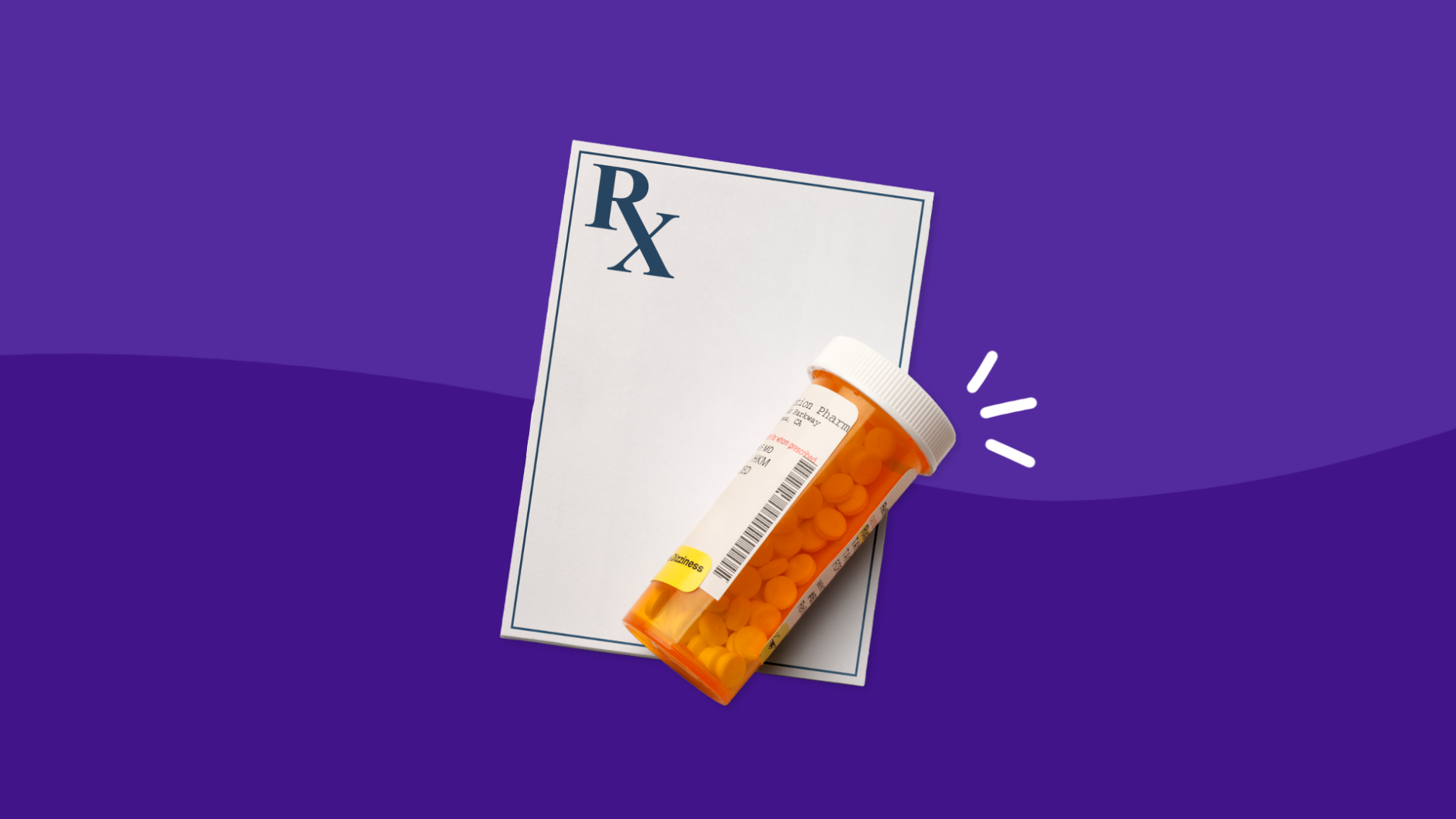Lyrica side effects | Serious side effects | How long do side effects last? | Warnings | Interactions | How to avoid side effects
Lyrica is a brand-name prescription drug FDA approved to treat nerve pain due to diabetic peripheral neuropathy (nerve damage), nerve pain due to spinal cord injury, pain following a shingles infection (postherpetic neuralgia), fibromyalgia, and to prevent partial-onset seizures in children and adults with epilepsy. Many people, though, may be prescribed Lyrica off-label for conditions such as restless leg syndrome (RLS), migraines, trigeminal neuralgia, and other stubborn neurological or psychiatric conditions.
The active ingredient in Lyrica, pregabalin, belongs to a family of drugs called gabapentinoids that work by slowing down nerve signals, allowing the drug to be used as an anticonvulsant for seizure disorder patients and an analgesic for neuropathic pain. Lyrica may not be right for everyone, though. Before taking Lyrica, it helps to be well-informed about side effects, restrictions, drug interactions, and the possibility of abuse and withdrawal associated with this drug.
RELATED: Learn more about Lyrica
Common side effects of Lyrica
Commonly experienced side effects of Lyrica include:
- Dizziness
- Drowsiness
- Dry mouth
- Swelling of the hands and feet (peripheral edema)
- Blurry vision or double vision
- Weight gain
- Abnormal thinking
- Weakness
- Constipation
- Accidental injury
- Joint or nerve pain
- Chest pain
Most Lyrica side effects occur in the first two weeks. The most commonly experienced side effects of Lyrica are sleepiness and dizziness. Each can occur in up to 35% of people taking pregabalin. However, the incidence of Lyrica side effects will depend on the condition being treated and the size of the dose.
Serious side effects of Lyrica
The most serious side effects of Lyrica include:
- Suicidal thoughts and behaviors
- Respiratory depression (dangerously shallow or slow breathing)
- Low platelet counts (serious bruising and bleeding problems)
- Muscle damage
- Severe allergic reactions including angioedema and potentially life-threatening skin reactions
Antiepileptic drugs in general raise the risk of suicidal thoughts and behaviors. Unlike some drugs, such as antidepressants, the FDA does not include a black-box warning about the risks of suicide when taking pregabalin. Patients and their caregivers, however, should watch carefully for unexplained mood changes or any worsening of existing depression or suicidal thoughts, comments, or behaviors.
How long do Lyrica side effects last?
Most common side effects of pregabalin, such as drowsiness, dizziness, dry mouth, weakness, and pain, will fade as the body eliminates the drug, usually in a little more than a day. More serious side effects may persist for days or weeks. Some, like allergic reactions, suicidality, or muscle damage may require treatment or hospitalization.
Lyrica contraindications & warnings
As a prescription drug that affects the nervous system, Lyrica carries risks for all patients. Some patients, however, because of pre-existing medical conditions or medications being taken are more at risk for problems.
Abuse and dependence
Pregabalin is a Schedule V prescription drug, so Lyrica has the potential for abuse, but the risk is low. Pregabalin abuse is mainly found among people with a prior history of substance abuse. Although pregabalin produces a high similar to alcohol, most recorded abuse involves combining it with other illicit drugs.
Pregabalin can cause behavioral dependence, physical tolerance, and withdrawal symptoms, particularly when used in high doses over a long time. Withdrawal symptoms include nausea, sleeplessness, headache, anxiety, diarrhea, itching, and excessive sweating.
Overdose
A pregabalin overdose could be fatal. If too much Lyrica is taken, seek immediate emergency medical help. Symptoms of pregabalin overdose include reduced consciousness, confusion, agitation, depression, anxiety, and restlessness. Severe overdose can result in seizures, heart block, or death.
Restrictions
Lyrica may not be the right medicine for some people to take, and others may be given Lyrica only under heightened monitoring and care.
People allergic to pregabalin will not be given the drug. Pregabalin can cause serious and life-threatening allergic reactions. When taking Lyrica, watch for symptoms such as swelling of the face and throat, hives, blisters, and problems breathing. As with all drugs, get immediate medical care if you suspect a possible allergic reaction to this drug.
Pregnant women may be prescribed Lyrica during their pregnancy if the benefits outweigh the risks. However, pregabalin should not be taken by women who are nursing. Because pregabalin is present in breast milk and could harm a breastfeeding infant, nursing women will be prescribed another medication or will have to stop breastfeeding while taking Lyrica.
Lyrica is more likely to cause side effects in people with certain medical conditions, so healthcare providers may prescribe the drug more cautiously and monitor the drug’s effects more closely.
- Lyrica will require the lowest possible dosing and careful monitoring in people with chronic obstructive pulmonary disease (COPD) or other lung disease. Pregabalin slows down breathing, so it could cause a potentially fatal inability to breathe in enough oxygen in people with lung problems.
- Lyrica will require close monitoring in patients with kidney problems. The drug is primarily eliminated through the kidneys, so any renal impairment will require lowering the dose and careful observation.
- People older than 65 are at a higher risk of kidney problems, sedation, and respiratory depression, so side effects will need to be closely monitored. Seniors may be started at the lowest recommended dose for their condition.
- Because pregabalin can cause peripheral and facial swelling, people with diabetes, congestive heart failure, or a history of swelling or angioedema will be given the drug cautiously, particularly if they are taking other drugs that may cause swelling or fluid retention as a side effect. People with diabetes taking Lyrica should immediately report any unwanted weight gain to their healthcare provider.
- People with a history of depression or suicidal behavior need to be closely monitored for mood changes and suicidality while taking Lyrica.
- People with a history of substance abuse will require careful monitoring for signs that Lyrica is being misused, such as decreased effectiveness of the drug, steadily increasing doses, and drug-seeking behaviors.
Lyrica interactions
Lyrica may cause problems when combined with other drugs, including drugs that slow down the nervous system, drugs that cause edema or fluid retention, and drugs that interfere with the ability of Lyrica to treat seizure disorders.
Many types of drugs are CNS depressants, that is, they slow down nerve signals in the central nervous system. Combining them with Lyrica will worsen side effects such as sedation, dizziness, and respiratory depression. These drugs include:
- Alcohol
- Marijuana
- Gabapentin
- Sedatives and sleep aids
- Benzodiazepines (such as lorazepam)
- Barbiturates
- Opioid pain relievers
- Antidepressants
- Antipsychotics
- Antihistamines
- Antiepileptic drugs
- Anti-nausea drugs
- Muscle relaxants
- Opioid pain relievers
- Parkinson’s disease medications
- General anesthetics
Some drugs significantly interfere with Lyrica’s ability to prevent seizures, so these drugs are never used when Lyrica is prescribed to prevent seizures. These drugs include amifampridine, dalfampridine, metoclopramide, maprotiline, bupropion, and muromonab-CD3. Other types of drugs can also reduce the therapeutic benefits of pregabalin in treating seizure disorders, requiring therapies to be monitored and possibly adjusted. These drugs include:
- Amphetamines, stimulants, and ADHD medications
- Some antiviral medications
- Penicillins, fluoroquinolones, and carbapenem antibiotics
- Corticosteroids
- Appetite suppressants
- MAO inhibitors, a small class of drugs that includes some antidepressants, antibiotics, and Parkinson’s medications
- Theophyllines, a class of drugs used to open airways in people with asthma or COPD
Finally, some types of drugs produce swelling (edema) as a side effect, so the risk of peripheral swelling and weight gain significantly increases when they are combined with Lyrica. These drugs include ACE inhibitors (blood pressure medications) and certain types of diabetes drugs.
How to avoid Lyrica side effects
Side effects are commonly experienced among people taking Lyrica, especially sleepiness and dizziness. A few tips can help minimize or manage Lyrica side effects.
1. Tell the doctor about all medical conditions
A doctor or other healthcare provider prescribing Lyrica will need a full medical history, particularly:
- Depression, mood problems, or suicidal thoughts
- Kidney problems
- Heart problems
- Bleeding problems
- Lung problems or trouble breathing
- Pregnancy or any plans to become pregnant
- Breastfeeding
- Plans to father a child
- Any past or present drug or alcohol abuse
- Any history of severe allergic reactions
2. Tell the doctor about all medications being taken
Many of pregabalin’s side effects can be worsened by other drugs, so it’s important to provide the doctor or healthcare professional prescribing Lyrica with a complete list of prescription drugs, over-the-counter medications, remedies, and dietary supplements being taken, especially:
- ACE inhibitors
- Opioid pain medications
- Diabetes medications
- Any drugs that cause sleepiness, drowsiness, dizziness, or problems with coordination
3. Take Lyrica as directed
Follow all the directions on the prescription label, printed in the medication guide, or provided by a healthcare provider. Do not take more or less than prescribed except under the advice of a doctor or other healthcare professional.
4. Do not stop taking Lyrica suddenly
When suddenly discontinued, Lyrica can cause unpleasant withdrawal symptoms. If the medicine is not working or side effects are intolerable, talk to a healthcare provider about the safest way to discontinue Lyrica.
5. Watch for changes in mood
People taking Lyrica may start thinking about suicide. Watch for unexplained mood changes such as sadness, depression, anxiety, panic attacks, irritability, hostility, or thinking about suicide. Mood changes may not go away when taking Lyrica, so talk to a healthcare provider for medical advice.
6. Avoid alcohol when taking Lyrica
Alcohol should be avoided when taking Lyrica. Dizziness, tiredness, sleepiness, and problems with coordination—common side effects of Lyrica—are worsened when alcohol is added to the mix.
7. Avoid driving or risky activities when taking Lyrica
Lyrica commonly causes sedation and dizziness, so avoid driving or other risky activities when first taking Lyrica. Once you have a better handle on Lyrica’s effects on attention, focus, and coordination, then carefully return to driving or other potentially hazardous activities.
8. Watch for weight gain or swelling
People with heart problems or diabetes should watch for weight gain or swelling when taking Lyrica. Talk to a doctor or other healthcare provider if the drug is causing swelling in the extremities or weight seems to be shooting up mysteriously.
9. Watch for early symptoms of serious side effects
Unexplained muscle pain or weakness may be a sign that pregabalin is damaging muscle tissue. Immediately call a doctor if muscles feel tender, painful, or weak. Unexplained bruising or unusual bleeding may be signs that pregabalin is causing platelets, the blood cells responsible for blood clots, to fall too low. Skin problems, such as blisters or rash, could be a sign of a serious allergic reaction.
10. Watch for signs of slow or shallow breathing
Patients or their caregivers should be especially vigilant for signs of respiratory depression such as slow breathing, shallow breathing, or blue lips, fingers, and toes. These are all indications that the patient’s ability to breathe is not sufficient to provide the rest of the body with oxygen. Don’t confuse these signs with trouble breathing, such as wheezing, gasping, or choking. People with respiratory depression often appear to be breathing normally, but they aren’t breathing enough. Immediate medical attention is required at any sign of respiratory depression.
Related resources for Lyrica side effects:
- Lyrica medication guide, Pfizer
- Lyrica, Epocrates
- Lyrica prescribing information, U.S. National Library of Medicine
- Lyrica website, Pfizer
- Pregabalin, StatPearls
- Pregabalin for neuropathic pain in adults, Cochrane Database for Systematic Reviews
- Special report: the abuse potential of gabapentin and pregabalin, Practical Pain Management











